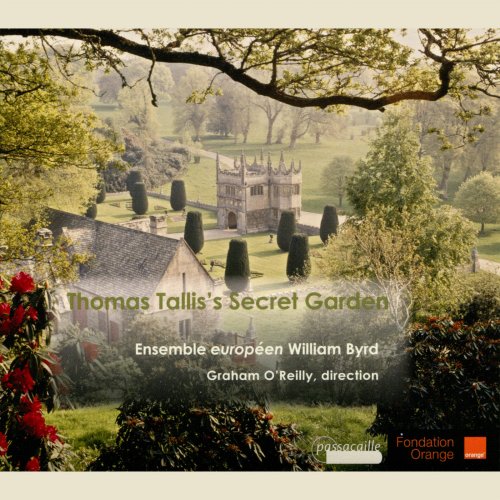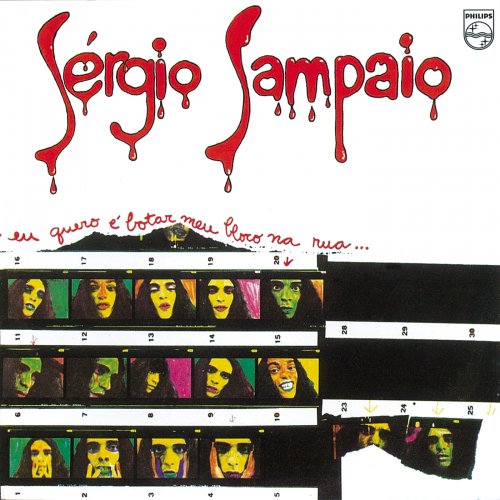Ensemble européen William Byrd, Graham O'Reilly - Thomas Talllis's Secret Garden: Sacred Music in Latin (2012)

Artist: Ensemble européen William Byrd, Graham O'Reilly
Title: Thomas Talllis's Secret Garden: Sacred Music in Latin
Year Of Release: 2012
Label: Passacaille
Genre: Classical
Quality: flac lossless
Total Time: 01:10:17
Total Size: 292 mb
WebSite: Album Preview
TracklistTitle: Thomas Talllis's Secret Garden: Sacred Music in Latin
Year Of Release: 2012
Label: Passacaille
Genre: Classical
Quality: flac lossless
Total Time: 01:10:17
Total Size: 292 mb
WebSite: Album Preview
01. Marian antiphon: Marian antiphon: Gaude Gloriosa Dei Mater (1)Graham O'Reilly
02. Marian antiphon: Marian antiphon: Gaude Gloriosa Dei Mater (2)Graham O'Reilly
03. Marian antiphon: Marian antiphon: Gaude Gloriosa Dei Mater (3)Graham O'Reilly
04. Marian antiphon: Marian antiphon: Gaude Gloriosa Dei Mater (4)Graham O'Reilly
05. Marian antiphon: Respond: Loquebantur variis linguisGraham O'Reilly
06. Marian antiphon: Respond: Audivi vocem de caeloGraham O'Reilly
07. Marian antiphon: Motet: Suscipe quæso Domine(1)Graham O'Reilly
08. Marian antiphon: Motet: Suscipe quaeso Domine(2)Graham O'Reilly
09. Marian antiphon: Respond: Dum transsiset SabbatumGraham O'Reilly
10. Marian antiphon: The lamentations of Jeremiah II (1)Graham O'Reilly
11. Marian antiphon: The lamentations of Jeremiah II (2)Graham O'Reilly
12. Marian antiphon: The lamentations of Jeremiah II (3)Graham O'Reilly
13. Marian antiphon: Marian antiphon: Salve intermerata Virgo Maria (1)Graham O'Reilly
14. Marian antiphon: Marian antiphon: Salve intermerata Virgo Maria (2)Graham O'Reilly
15. Marian antiphon: Marian antiphon: Salve intermerata Virgo Maria (3)Graham O'Reilly
Australian conductor Graham O'Reilly founded Ensemble européen William Byrd in France in 1990 to perform Thomas Tallis' 40-part motet, Spem in alium, and the group has gone on to specialize in the music of the Renaissance and Baroque, with emphasis on 17th century repertoire. This album is a fascinating demonstration of the variety of styles Tallis adopted in his Latin sacred music during the reigns of the monarchs (Henry VII, Edward VI, Mary I, and Elizabeth I) who ruled during his career. Not surprisingly, he produced most of his Latin liturgical music during Henry's reign, before it became apparent that the Anglican schism would necessarily result in a repudiation of the culture as well as the authority of Rome, and during Mary's reign, when the church was again supportive of majestic and elaborate polyphony. The 17-minute Marian antiphon, Gaude gloriosa Dei Mater, which Tallis may have written for Mary's coronation in 1553, is an extravagantly melismatic, dense contrapuntal thicket that requires considerable concentration to follow. In the far more accessible Respond: Loqubantur variis linguis, Audivi vocem de caelo, Dum transisset Sabbatum, the polyphony is punctuated by sections of solo plainchant. The singers perform these a cappella works with exceptional focus, intensity, and crystal-clear intonation; when they land on a major chord, the effect is like a ray of sunlight breaking through clouds. The pieces are performed with one singer per part, so the lines are distinct, the harmonies (which are sometimes intriguingly odd) are easy to hear, and the balance is good. The singers' tone, individually and when blended, is consistently open, sweet, and pure. O'Reilly has stated that even within the period practice movement, vocal music is often performed with too much Romantic expressiveness, and his approach to the music can sound austere to ears accustomed to more emotive performances. For fans of the repertoire and other adventurous listeners, his uncompromising take on this music can be bracing, but it is not conducive to casual listening. Passacaille's sound is clear, clean, and natural sounding.

![Five Seasons - Lift Me Up (2026) [Hi-Res] Five Seasons - Lift Me Up (2026) [Hi-Res]](https://www.dibpic.com/uploads/posts/2026-02/1770196546_cover.jpg)


![Suntou Susso - Jaliya Silokang (The Path of a Griot) (2025) [Hi-Res] Suntou Susso - Jaliya Silokang (The Path of a Griot) (2025) [Hi-Res]](https://img.israbox.com/img/2026-02/02/fx7n1o7vkgvz64y2vdawp9o8r.jpg)


![Owelu Dreamhouse - Owelu Dreamhouse (2026) [Hi-Res] Owelu Dreamhouse - Owelu Dreamhouse (2026) [Hi-Res]](https://img.israbox.com/img/2026-02/05/dyetvafic12nz1s9v6zs98erj.jpg)
